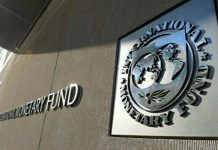By Chi Jingyi &
Zhang Dan
India’s overconfidence in its economic strength and its many challenges against Chinese enterprises will hurt itself more in the longer term amid bilateral tensions and the ongoing COVID-19 pandemic, analysts warned, adding that a tit-for-tat tariff war was unlikely. Such comments came after a report by the Hindustan Times, which said that the Indian government was considering remedial duties on the import of single-mode optical fiber.
A manager of a Beijing-based optical fiber cable producer and exporter told the Global Times that sales to India account for a small part of the company’s total exports, and Chinese fiber products offer better quality and lower prices than Indian ones, because mass production in China leads to low costs.
“It is hard to say if India will increase tariffs on such products, for which it relies on imports. But honestly speaking, Chinese products are the most cost-effective choices for India,” the manager noted.
China’s Commerce Ministry imposed anti-dumping measures on single-mode optical fiber imported from India starting from August 14. The fiber is usually used as a medium in telecommunications, transportation and smart industries.
It is almost impossible for trade friction between China and India to escalate to the level of the US-China trade war, or for there to be a tariff war, but the possibility of some extreme events cannot be ruled out, said Bao Jianyun, professor of the School of International Studies and director of the Center for International Political Economy Studies at Renmin University of China, adding it is possible that trade friction between China and India will escalate in the short term.
“In the long run, a good trade relationship between China and India is beneficial for both countries, especially India, as China is an important trading partner of India. Long-term trade friction will damage India more,” Bao told the Global Times on Tuesday.
“India has overestimated its economic and trade power, and misjudged China’s position in global trade, making it overconfident. Indian ruling elites even regard China’s restraint and love for peace as weakness. If India continues to take extreme protectionist measures, China will definitely take countermeasures,” Bao added.
More importantly, such thinking may result in a widening economic gap between the two countries as the South Asian nation’s economy is still affected by the COVID-19, said Xiao Xu, a research fellow of the College of Business Administration at the Capital University of Economics and Business, told the Global Times on Tuesday.
“China’s economy has recovered from the pandemic and GDP is growing again. However, as the epidemic has not been effectively contained in India, stirring up trouble is clearly a failure when fully considering the actual situation of the country’s economy, which will exacerbate the economic downturn in India,” said Xiao.
–The Daily Mail-Global Times news exchange item




